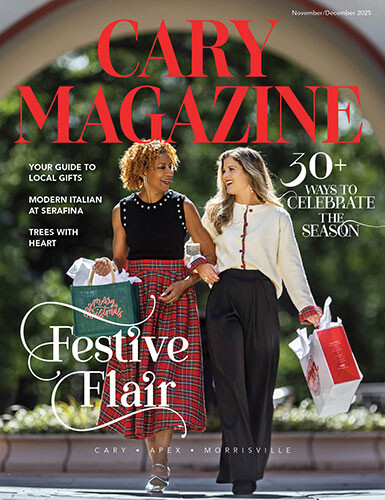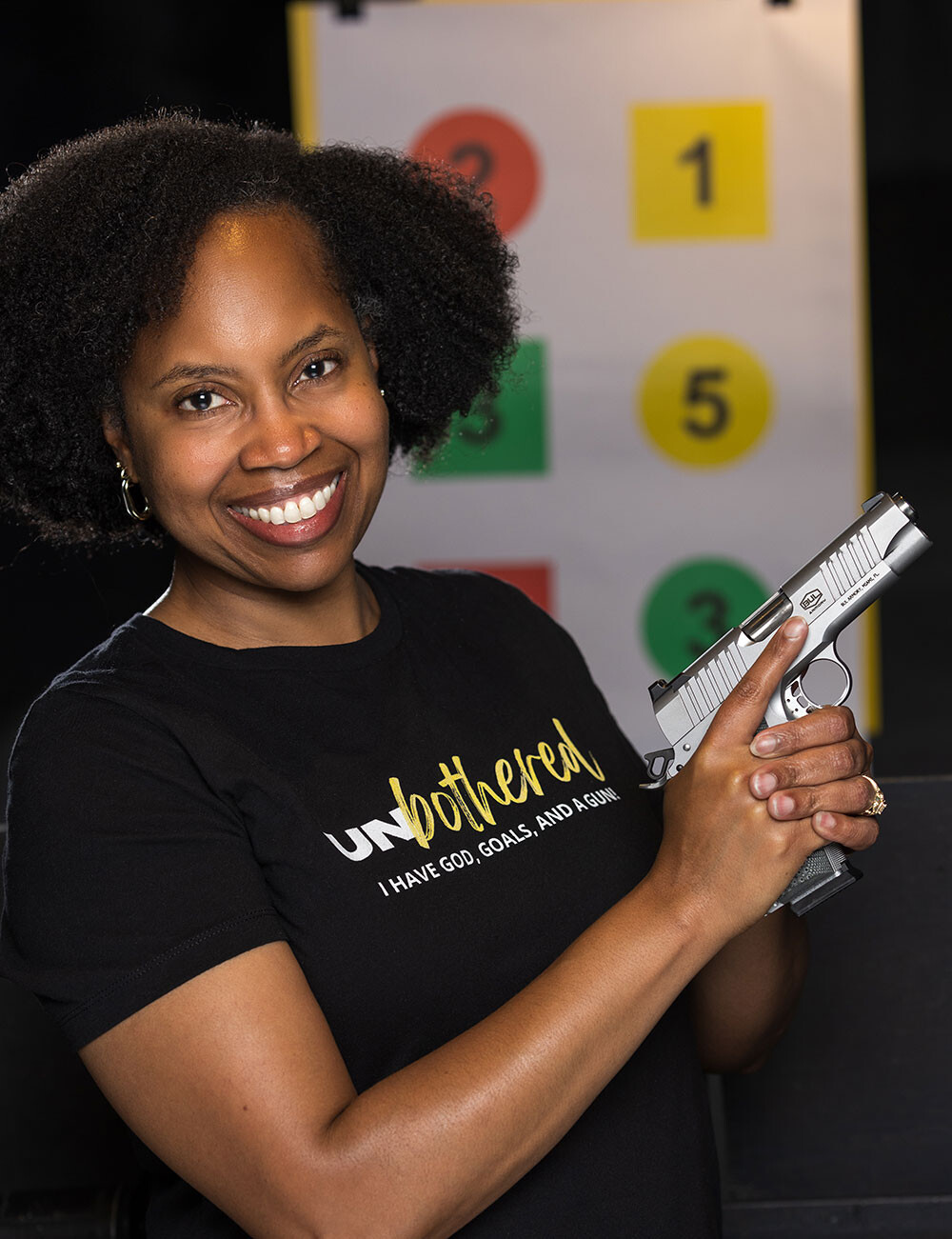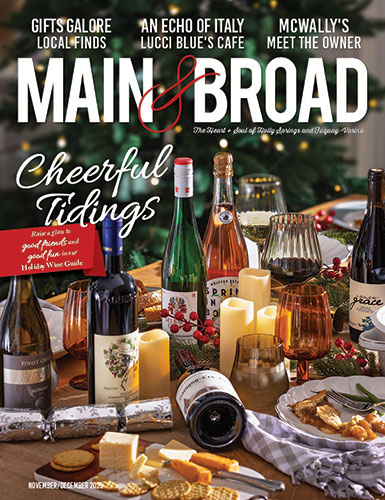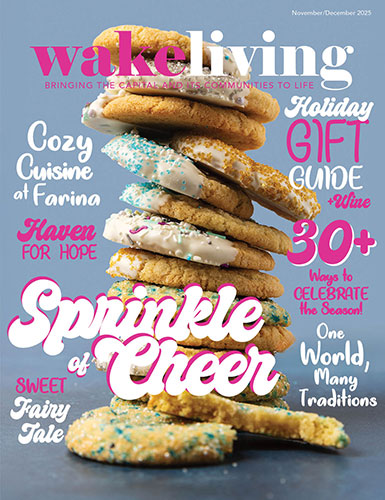Dr. Joy Allen taught herself calculus over the summer after fifth grade.
She didn’t have a particular love of math or desire to get ahead in her studies. Rather, the avid reader was given a textbook by her father and worked her way through its pages.
Her parents were encouraging, she says, though “It wasn’t that encouragement like, ‘You can do this.’ It was that encouragement like, ‘You’re going to do this, or you’re going to figure it out.’” Which is precisely what she did with calculus.
“I don’t even think it was necessarily an expectation,” she posits in hindsight. “I think he just wanted to give me something to keep me busy so I wouldn’t keep buying books.”
Given her early mathematical triumph, you probably aren’t surprised to read she’s now a clinical research executive. You might be impressed to learn that she’s also a pastor. But you will likely raise your eyebrows upon discovering she’s a firearms instructor, too.
Finding Her Path
Born and raised in Raleigh, Dr. Allen recounts her childhood spent “always outside, always with friends, racing BMX bikes, climbing trees — it was awesome.”
When she applied for college, she faced a choice between Harvard, Duke, or UNC-Chapel Hill. Upon being offered a full ride, she chose UNC on a premedical path. She loved it, but realized in her second year that she wasn’t following her own desires.
“I was voluntold to be a doctor,” she says. “I’d never really thought about what I wanted. And I realized I really wanted to do missions, to go around the world and help people out.”
When she told her father she wanted to drop out to pursue missionary work, “He nicely threatened my life and told me I was going to finish my degree,” Allen recounts with a smile.
In pursuit of both goals, she changed her major to foreign language with a minor in biostatistics. She spent years in the biostatistics lab, including work on the famous Atherosclerosis Risk in Communities (ARIC) study.
After graduating from undergrad, the reality of needing to earn a living wage set in. She worked as a telecom engineer until the market crash pushed her back to clinical research, where she’s been building her career ever since.
She describes her day job with the Prostate Cancer Clinical Trials Consortium embedded within Memorial Sloan Kettering — which she works from home for “8 to 10 hours a day” after waking up by 4:30 to attend Burn Boot Camp — as cleaning and wrangling the data collected in clinical trials. Her family sees things through a different lens: “My kids like to say I’m the reason you have the commercials that say, ‘This may cause heartburn, blindness, death,’’’ she notes with an endearing laugh.
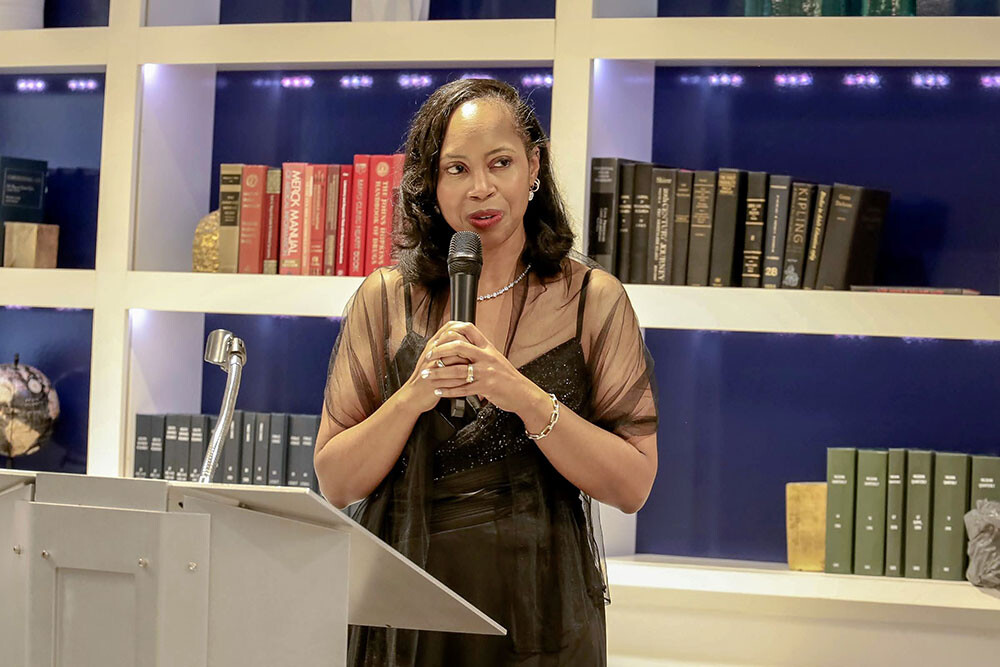
Contributed photo
Higher Callings
During her clinical research work, Allen received a scholarship to New Covenant International Bible College to complete a master’s degree followed by a PhD. In 2007, Dr. Allen and her husband, Chris, founded Breath of Life International Church in Garner, attended largely by college students.
One of those students, Shannon DeVaughn, found the church when she was longing for more in life. “It really was a place of healing, a place of hope for me,” she says, at a time when “I needed some hope. I needed joy.”
DeVaughn describes Dr. Allen as “literally one of the best people to ever walk the face of this world.”
After pastoring for 15 years, the Allens decided to close the church in order to spend quality time with their children, Jaaron and Jasmine — now 24 and 22 — before they left the house.
The congregation supported their decision. But then, “A few weeks later, people started slowly trickling back to our house,” Dr. Allen remembers. They started a home fellowship that still meets today. The small, tight-knit group allows for “very open conversations” and “a lot more in-depth study of the Bible” than the more formalized structure of a church service.
“Everyone who was at the church knows that when they come to Raleigh to visit, they know where we live. They’re more than welcome to stop by,” Dr. Allen says, “and they usually do.”
Changing the Course
When Chris, a Marine Corps veteran, occasionally suggested getting a home firearm, Dr. Allen’s answer was clear: “Nope, got kids in the house — don’t want anything to do with it.”
But after she hit 40 and decided learning to shoot was “a bucket list type thing, not deep at all,” he bought her a lesson with a well-known shooter who had competed on the TV show Top Shot, Chris Tilley.
“The first shot (he fired) scared the bejesus out of me,” she recalls. “But then when he gave me the gun and I took my first shot, there was this sense of empowerment.” That feeling drove her to continue. She took more classes and started spending her lunch breaks at the range.
She quickly realized the expense involved in learning to shoot. She thought of the people she knew who “needed not even necessarily the gun but all the education that came around it on how to stay safe,” and realized most of them couldn’t afford it. Her ministerial mind saw an opportunity to help.
Together, the Allens founded E3 Personal Defense, which partners with civic organizations and churches to offer classes at affordable rates or free of charge. In 2020, they followed with InHER Piece ladies’ shooting clubs to break down barriers to personal protection education for women of all backgrounds.
In her own defensive education, Dr. Allen recalls the class atmosphere sometimes being “very uncomfortable, very demeaning,” citing Confederate flags, crude jokes about women, and racial expressions as commonplace. E3 classes and InHER Piece clubs present the opposite experience. She wants students to “understand right off the bat that this is not a crazy gun person. It’s someone who actually cares about people.”
One story in particular stands out in her mind. In an introductory class, a young woman was engaged and smiling during the classroom portion. Her positivity continued as they moved to the range and Dr. Allen guided each student through their first shot. When the woman pulled the trigger, she hit the bull’s-eye. Instead of celebrating, the student collapsed into Dr. Allen’s arms and started crying. “She asked me to pray for her, right there on the gun range,” Dr. Allen recalls.
The student revealed she was in the class to process her own trauma. “A year before she took the class, she had watched her dad walk into the room with a gun and shoot her mom in the head, point blank.”
Now, Dr. Allen asks herself about the why that inspires people to take her classes.
She also considers her own.
“My goal and my why is to build confidence and make sure people know that they are worth it,” she says. “Whether that has to do with fitness or their career, gun, or whatever else, you’ve got to know that you’re worth being here, and don’t apologize for the space that you’re taking up.”
- Women of Western Wake: Annette Hibbert Stevenson
- Meet Cary Magazine’s 2024 Women of Western Wake
- Women of Western Wake: Sue Harnett
- Women of Western Wake: Katie Gailes
- Women of Western Wake: Elaine Buxton
- Women of Western Wake: Dr. Joy Allen
- Behind the Seams
- Garden Adventurer: Peony Patience
- Liquid Assets: Pub Ale
- Liquid Assets: Your Favorite Scarf
- Restaurant Profile: Myra Café
- Nonprofit Spotlight: Thrift2Gift
- Small Business Spotlight: Spavia Day Spa MacGregor Village
- Creative Awakenings
- On Trend: The Sandwich Method
- Things to Do: September 2024
